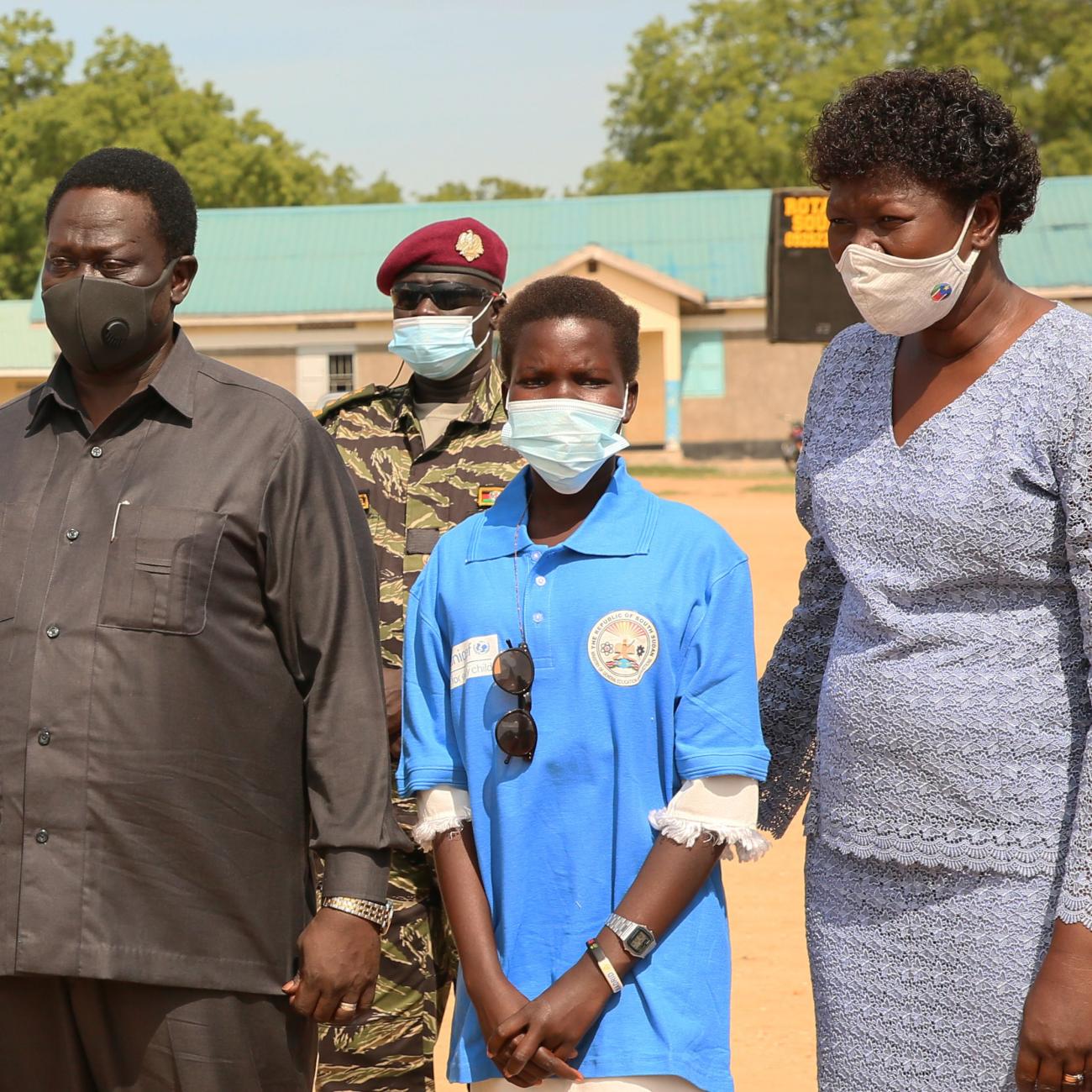With the closure of schools, from one day to another, the number of out of school children in South Sudan had almost doubled.
Monday 3 May was a special day for millions of children in South Sudan. Schools finally reopened their doors after more than 14 months of closures because of COVID-19. On that day the Vice-President of South Sudan, and the Minister of General Education and Instruction rang the bell in Juba Boys Primary School. Several UN agencies, Embassies as well as education actors were represented at the event.
With the closure of schools, from one day to another, the number of out of school children in South Sudan had almost doubled. Before the pandemic, 2.8 million children were out of school due to poverty, inequalities, cultural beliefs and nomadic lifestyles. With the closures of schools an additional 2 million children were out of school. The closure ended up being a huge blow for education, but more than anything it turned into a child rights crisis.
There are reports of children having been engaged in child labour, children roaming the markets looking for work and opportunities, children joining gangs and engaged in crime and substance abuse. Moreover, girls have been hit the hardest. Numerous reports speak about child marriages and early pregnancies due to girls being out of school and increased gender-based violence.
The Ministry of General Education and Instruction, UN and other education partners launched a distance learning programme through radio providing lessons twice a day as a way for children to continue learning and to stay engaged while home to prevent some of the adverse effects we saw. However, nothing can replace face-to face education. The remote learning programme remained a temporary solution and the need for the reopening of schools became imminent.
Ensuring children resume schooling has important benefits beyond academic learning. Schools are safe places for children where they are protected from exploitation, abuse and from harmful cultural practices such as child marriage and early pregnancies. Schools allow children to access basic services including clean water, health and in many cases also food.
As schools have now resumed, it is important to monitor how many children effectively returned to the education facilities. The longer children are out of school, the harder it is to get them back. This is especially true for girls. A lot of the girls who got pregnant or were married off will most likely never return. A special emphasis should go to support their return to schools.
As we move ahead it is important to remember how the closure of schools has severely impacted on the well being of children and on the country, and to avoid any new school closures in the future.
















